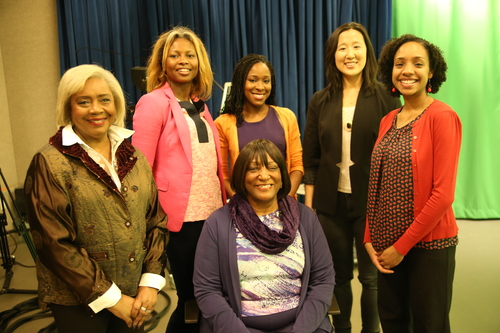
By John Black
Unlike feature film makers, documentarians don’t have the luxury of a script to follow or a cast of professional actors to help them bring their story to life. They find a subject or cause that they’re passionate about, or that they believe is compelling enough to inspire an audiences’ passion, and spend months or even years of their life hoping to bring it all to life on the big screen.
“I believe there’s a spiritual element to making a movie like this,” explained filmmaker Crystal R. Emery regarding her latest film, Black Women in Medicine. “A documentary filmmaker never really knows how the story ends until she arrives there, so you have to have faith that you’re doing something important, that no matter where it takes you it is still a story that needs to be told.”
Black Women in Medicine explores the history, contemporary issues, and future possibilities of African American women physicians by featuring the diverse voices of young medical students, practicing physicians, and elder trailblazers all of whom share intimate stories of what it means to be a Black woman doctor in America. Currently, only 4.5 percent of all doctors in the United States are African American and 2 percent of all physicians are Black women.
Although she did a lot of research before ever calling ‘action’ on the set, Emery told Color Magazine that the key to exploring the world of Black women in the medical profession was sitting down with the women and listening to them tell their story. “None of the young women I interviewed ever talked about going into medicine to make money or as a way of gaining status,” she said. “To them, becoming a doctor was a calling, one that they had from a very young age. They wanted to be doctors when they grew up and, with a lot of hard work, that is just what they became.”
While listening to the young women in the movie talk about their desire to be a doctor is certainly inspirational, the movie also takes the time to shine a light on the generation of women who blazed the trail these new doctors will be following. Those interviewed include: Dr. Claudia Thomas, First Black woman Orthopedic Surgeon; Dr. Jocelyn Elders, First Black woman U.S. Surgeon General; and Dr. Velma Scantlebury, First Black woman transplant surgeon.
“The new generation of young doctors are truly standing on the shoulders of giants,” Emery said. “And you can tell that they not only appreciate what has been done in the past, but that they will do all they can for the future generation of Black women in the medical field.”
For more information about Black Women in Medicine, visit changingthefaceofmedicine.org.


